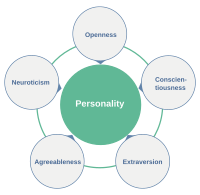
glca: An R Package for Multiple-Group Latent Class Analysis
Sign Up to like & getrecommendations! Published in 2022 at "Applied Psychological Measurement"
DOI: 10.1177/01466216221084197
Abstract: Group similarities and differences may manifest themselves in a variety of ways in multiple-group latent class analysis (LCA). Sometimes, measurement models are identical across groups in LCA. In other situations, the measurement models may differ,… read more here.
Keywords: group; package; multiple group; latent class ... See more keywords

Cross-cultural measurement of social withdrawal motivations across 10 countries using multiple-group factor analysis alignment
Sign Up to like & getrecommendations! Published in 2022 at "International Journal of Behavioral Development"
DOI: 10.1177/01650254221132774
Abstract: The goal of this study was to evaluate the measurement invariance of an adapted assessment of motivations for social withdrawal (Social Preference Scale–Revised; SPS-R) across cultural contexts and explore associations with loneliness. Participants were a… read more here.
Keywords: social withdrawal; analysis alignment; group factor; cross cultural ... See more keywords

Investigating the Applicability of Alignment—A Monte Carlo Simulation Study
Sign Up to like & getrecommendations! Published in 2022 at "Frontiers in Psychology"
DOI: 10.3389/fpsyg.2022.845721
Abstract: Traditional multiple-group confirmatory factor analysis (multiple-group CFA) is usually criticized for having too restrictive model assumption, namely the scalar measurement invariance. The new multiple-group analysis methodology, alignment, has become an effective alternative. The alignment evaluates… read more here.
Keywords: methodology; group cfa; alignment; group ... See more keywords

Model-Robust Estimation of Multiple-Group Structural Equation Models
Sign Up to like & getrecommendations! Published in 2023 at "Algorithms"
DOI: 10.3390/a16040210
Abstract: Structural equation models (SEM) are widely used in the social sciences. They model the relationships between latent variables in structural models, while defining the latent variables by observed variables in measurement models. Frequently, it is… read more here.
Keywords: equation models; structural equation; model robust; group ... See more keywords